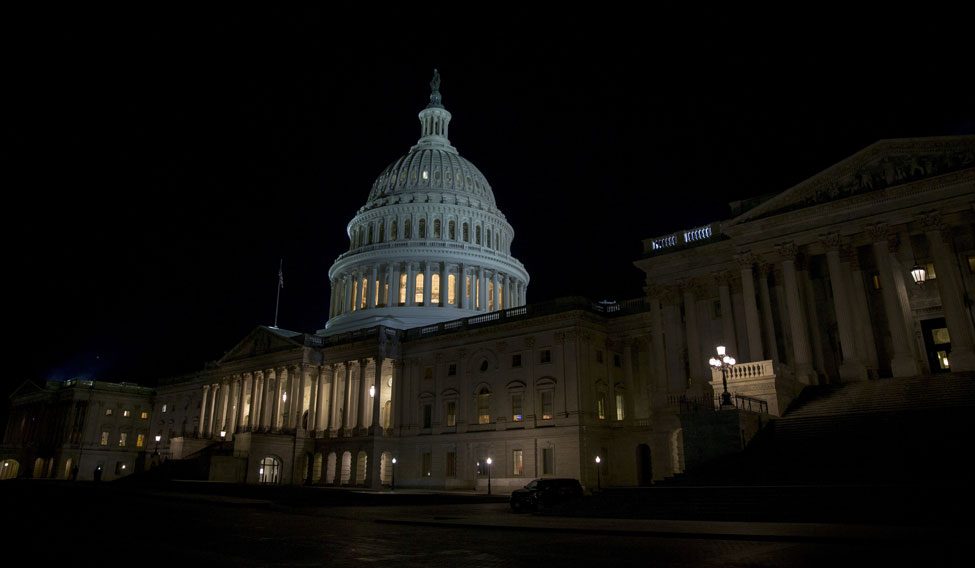The US Senate will vote on a bill on January 22 to end the federal government shutdown, Senate Majority Leader Mitch McConnell has said.
McConnell said the Senate will vote on a bill at noon to fund the government until February 8, cancelling an earlier planned vote at 1 am on January 22, the US media reported.
If the government is open, "it would be my intention to proceed to legislation that would address DACA, border security and related issues," McConnell said on the Senate floor, referring to the Deferred Action for Childhood Arrivals programme that prevents the deportation of young immigrants, a key demand of Democrats.
"Importantly, when I proceed to the immigration debate, it will have an amendment process that is fair to all sides," he said.
Read more: US government to remain closed today as Senate still short of deal
But Senate Democratic leader Chuck Schumer said on the Senate floor on January 21 that "we have yet to reach an agreement" on reopening the government and immigration, the media reported.
Under Senate rules, the three-week stopgap spending bill needs 60 votes in the 100-member chamber to overcome blocking tactics by opponents.
Read more: US government shuts down as Trump feuds with Democrats
The Republicans currently have 51 senators and would need some Democratic support to pass a budget. But President Donald Trump said the "nuclear option" of a simple-majority vote was necessary.
Senate Majority Whip John Cornyn of Texas said he thought Schumer agreed to push back the vote to give his caucus "a chance to chew" on a GOP proposal to break the impasse.
A top Democratic leadership aide said unless Republicans make significant changes to their offer, Democrats will likely reject it when the vote comes at noon.
The Democratic aide did say, however, that progress was made in the lengthy negotiations that took place late night on January 21 But more talks were needed.
The effects of government shutdown will be more visible on January 22, when federal agencies and financial markets open, and thousands of non-essential federal employees were expected to be furloughed.
The last government shutdown, in October 2013, lasted for 16 days and about 850,000 federal employees were furloughed.
The current government funding expired on midnight of January 19 as the Senate failed to advance a stopgap spending bill, which had passed the House of Representatives and would fund the government through February 16.
Democrats had hoped that they could use the government spending as leverage to pass an immigration bill, while Republicans and the Trump administration insisted that they would not negotiate on immigration until Democrats give them enough votes to reopen the government.
Speaking to US troops in the Middle East, Vice President Mike Pence reiterated his party's stance.
"We're not going to reopen negotiations on illegal immigration until they reopen the government and give you, our soldiers and your families, the benefits and wages you've earned," he said.
The US budget must be approved by October 1 — the start of the federal financial year.





